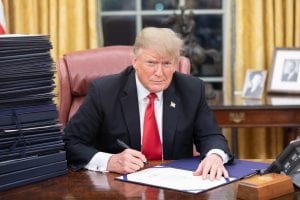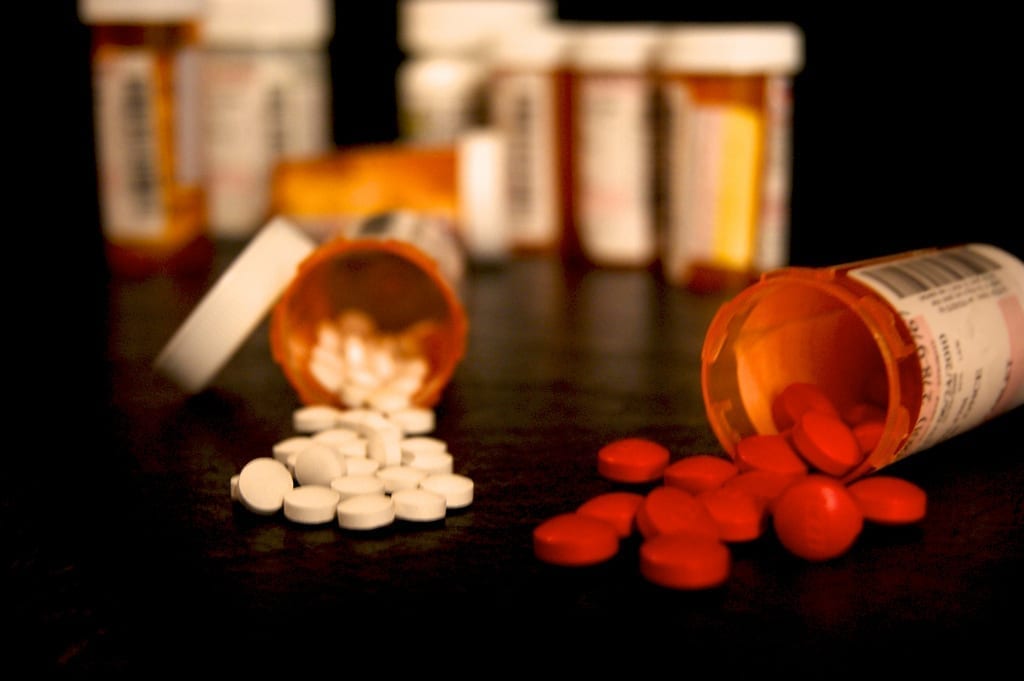While pharmaceutical executives have so far refused to negotiate with the White House, experts say Trump’s orders may lack any real bite.
President Donald Trump has signed four executive orders designed to lower drug prices.
According to National Public Radio, the orders were signed Friday and contain a variety of measures. One, for instance, allows certain drugs to be imported from Canada, while another permits discounts negotiated by pharmacy benefit managers to be availed by Medicare patients.
NPR notes that among the orders’ most “radical” reforms is a new requirement that Medicare pay the same price for drugs that other countries pay.
While the orders were signed late last week, the fourth, “radical” order will not immediately take effect: President Trump said that he is giving pharmaceutical companies until August 24th to make a deal with his administration. If they do not negotiate, then Trump says he will implement the orders.
“We may not need to implement the fourth executive order,” Trump said, “which is a very tough order.”
Industry experts told NPR that Trump appears to be tackling the pharmaceutical industry in an effort to win voters’ trust.

“Clearly what this speaks of is a bit of desperation as to the president’s sinking in the polls and needing to show that he is doing something about a campaign commitment from four years ago on which there really hasn’t been much action,” said Ameet Sarpatwari, assistant director of Harvard Medical School’s Program on Regulation, Therapeutics and Law.
Sarpatwari said it is likely the White House may “slow” walk all of the orders—threatening to implement them, or actually putting them in action, but taking months or years to actually enforce the new regulations.
The executive orders appear to have provisions in-built to prevent the president from taking quick action. For instance, NPR points out that the executive order allowing “middlemen” to negotiate pharmaceutical discounts for Medicare includes a section putting terms on its implementation: before the order can take effect, the Department of Health and Human Services must confirm that the order will not cause excess federal spending, or increase patients’ premiums and out-of-pocket costs.
Based on its experts’ analysis, National Public Radios says that one of those three conditions—excess federal spending, or increased patient costs—is bound to happen, virtually ensuring that the order never adversely impacts pharmaceutical manufacturers or retailers.
“This is the sound and the fury signifying nothing,” Sarpatwari said.
One way or another, drug makers are predictably unhappy with Trump’s threats.
“The administration’s proposal today is a reckless distraction that impedes our ability to respond to the current pandemic—and those we could face in the future,” said Steve Ubl, chief executive of trade group PhRMA. “It jeopardizes American leadership that rewards risk-taking and innovation and threatens the hope of patients who need better treatments and cures.”
Despite its anger at the administration, industry lobbyists have so far refused invitations from the president to discuss price controls and other reform.
“The White House has been more than accommodating in attempts to schedule this meeting,” a White House official told The Hill, referencing Trump’s invitation to pharmaceutical executives.
Lobbyists, though, say it’s difficult to negotiate when the administration has touted his executive orders without even releasing their full text.
“We don’t even know what we’re negotiating against,” one industry insider said.


Join the conversation!